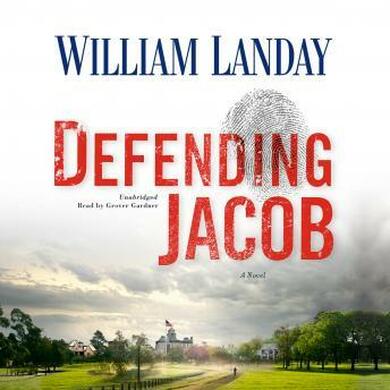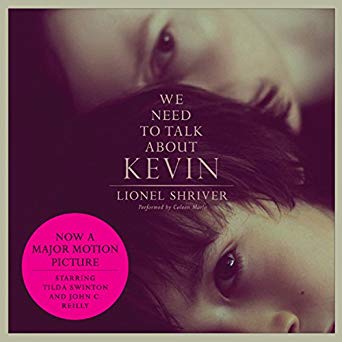|
I seldom read fiction... which is why I was surprised to find Defending Jacob, a legal thriller by William Landy, on my Favorites list. I mean, I must have added there at some point for some reason, right? So I decided to give it a try. And... I actually really liked it. Enough to maybe even read it again, someday. The first few pages are written in the style of a court transcript... which I didn't love. Honestly, I kinda almost stopped reading. But my five minutes of perseverance paid off, as I soon learned the story of Andy Barber, a prosecuting attorney whose teenage son is accused of murdering a 14-year-old classmate. Even as evidence mounts up against Jacob, Andy feels like it is his duty to believe and defend his son. This results in a psychologically thrilling look into his mind -- as a dad, as a husband, and as a lawyer. I loved hearing his first-person take on how the justice system fails the innocent, rather than the victim. I loved the feeling of simultaneously pulling for Andy... while condemning Jacob. Thinking back, the story reminds me a bit of We Need to Talk About Kevin, a novel about a mother whose son committed a school shooting. I initially read it to support the author, Lionel Shriver, whose stance on "cultural appropriation" was reasonable, not ridiculous, causing twitter mobs and social justice outrage. However... I ended up really enjoying the book. It was probably the most visceral, uncomfortable thing I have ever read. I felt so trapped for her, so sorry for her. Then the story takes a shocking twist at the end that will destroy you. This is actually probably how Defending Jacob ended up on my list -- some recommendation algorithm. Anyway, completely different stories, completely different vibes, storytelling strategies (Defending Jacob is told mostly through first-person narrative and occasional court transcripts; We Need to Talk About Kevin is written as a series of letters from Kevin's mother to her estranged husband, Kevin's father)... But both have a pretty huge twist at the end that you likely won't see coming. And I'm not going to spoil it. (Unlike Those Girls, by Chevy Stevens, which I gladly spoiled because it was almost offensive how horrible it was.) The pacing was brilliant -- usually, when I read, I do at least some skimming, and when I listen to audiobooks, I listen at least part of the time on 1.5x. Defending Jacob's narrative is tight; every word feels like it belongs. Nothing drags. The only thing I didn't love about the story was the discussion of a possible "murder gene." Andy is a Yale graduate, a family man, a lawyer with a reasonably successful career. But it is revealed after Jacob is accused that Andy's father (Kevin's grandfather) is serving a life sentence for murder... So they bring in a psychiatrist who studies behavioral genetics to test the Barbers for the "murder gene," or the gene encoding the neurotransmitter-metabolizing enzyme monoamine oxidase A (MAOA). It bothered me because, okay. Sure. We know about genes that correlate with a higher incidence of violence. Studies have found that violent criminals in frequently possessed either MAOA-L or a mutant version of another gene, CDH13, while the nonviolent controls did not. We know that the heritability of antisocial personality disorder is estimated to be 0.38, meaning that, on average, about 38% of individual differences we observe in degree of “sociability” (or “anti-sociability") are in some way attributable to individual genetic differences. (It does not mean 38% of a person's sociability is due to genes, and the other 62% is due to their environment.) It just seemed way too wishy-washy and imprecise to ever be brought up in court. So, yeah, it bothered me. However... William Landy writes on his website that in September 2010, in Italy, a man convicted of the Italian equivalent of second-degree murder had his 9-year sentence reduced on appeal "on the grounds that he exhibited abnormalities in brain-imaging scans and in five genes that have been linked to violent behaviour." So... maybe the idea isn't completely outlandish. But it's pretty outlandish. Nevertheless, it's a super engaging read -- especially when that court transcript I complained about in the beginning of this post comes back full-circle to perfectly conclude the story. If you can suspend your disbelief about that one little thing (the "murder gene"), you'll be glad you gave Defending Jacob a chance.
0 Comments
Leave a Reply. |
About The Happy Talent - Products
This is just a place where I share things I like. I would never, ever recommend something I didn't genuinely love. And when you buy using my links, it helps me keep this blog going. It's a win-win!
Archives
July 2022
Categories |


 RSS Feed
RSS Feed